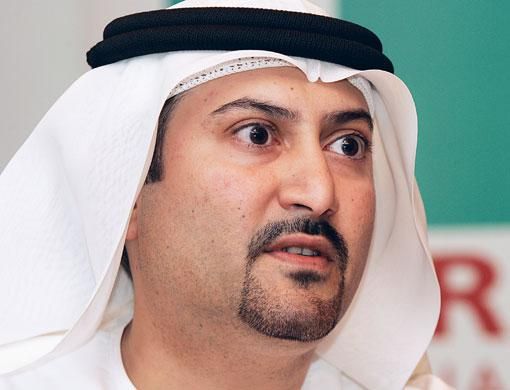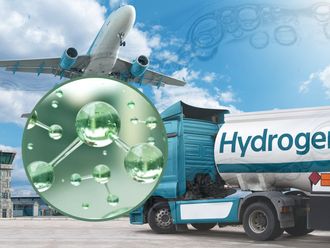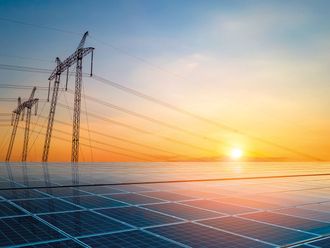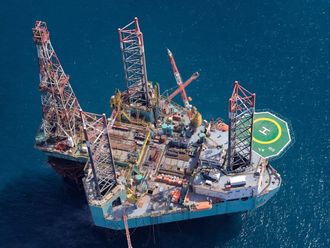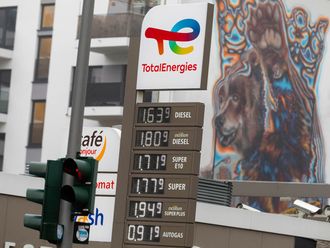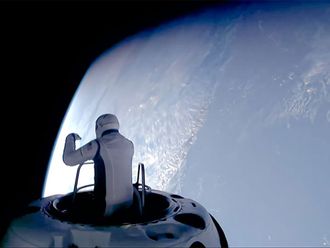Dubai: Yusr Hussain Sultan Al Juneidy is the chief executive of shipping, terminals and liquefied petroleum gas businesses at Emirates National Oil Company (Enoc). He holds several positions at the group's affiliated companies.
These include Horizon Terminals Limited, a provider of bulk petroleum products storage facilities. As its chief executive officer, Al Juneidy, 38, wants to push Horizon to new limits even in these times of a serious global economic downturn.
He has a BSc. in biochemistry from Canada's Ottawa University and a BA in economics. He also holds an MBA from Boston University.
In an interview with Gulf News, Al Juneidy outlines the expansion strategy of Horizon and the rationale for new investments.
Gulf News: How is the petroleum products storage business faring in the current economic downturn?
Yusr Al Juneidy: We are an independent petroleum terminalling company and focus on bulk liquid storage for a variety of clients. Some of them are international traders, oil refiners, and super majors that are in the oil and the petrochemicals businesses.
What is happening in the market now is that oil is still being produced, and it is continuously flowing through the international market. The storage business specifically is quite robust because it is viewed as essential infrastructure. It gives you reasonably stable financial returns, and it is less volatile since our business is dictated by term contracts of between one and three years.
Because of oversupply, some companies are storing crude on ships. Do you see any glut in the refined petroleum products market?
In addition to the fact that our business is considered essential infrastructure, there is also an oversupply [or products], which has led to a strong demand for terminalling facilities. Lower demand, excess supply of oil and longer-term contracts are allowing us to withstand this shakeup in the market place.
Since you are witnessing increased demand for storage facilities, do you intend to build more of them?
We now have five million cubic metres of storage capacity worldwide, primarily in the Middle East and Southeast Asia. We also have presence in the Mediterranean and East Africa. We intend to grow in trading hubs, followed by shipping corridors and import locations.
The bulk of your facilities are in the UAE and Singapore.
They both are viewed as strong hub locations. So by nature of that business we have invested in more capacity [in Singapore and UAE] than normally we would have in import locations. We are now looking to add to the five million cubic metres of capacity another million cubic metres over the next two years. We have expansions in existing locations such Yanbu in Saudi Arabia and in Fujairah. [Also], we are hoping that Indonesia will also materialise soon.
What type of facility is being planned in Indonesia?
We are in the process of getting all the necessary approvals to actually begin the investments. Hopefully, we will be able to break ground towards the end of 2009. Its capacity will be about 200,000 to 250,000 cubic metres. This is going to be in Merak and the investment will be around $45 million.
The core of our strategy is to invest in hub locations and also in countries that have a shortage of such facilities, and where refiners and traders need them to blend and store products. Indonesia is an importer of products and importers need infrastructure to bring the products in.
What other areas are you looking at for expanding your business?
We have many projects but I cannot mention them. We will be announcing them in the future. Because of the current market situation, the rate of development will end up being slower than we had originally planned.
How much financial investment are you planning to make in the next few years?
So far we have invested a gross amount of about $1 billion in all the facilities. We are looking to add to that to bring our capacity to six million cubic metres by the end of 2010. That means we will have to invest another $250-$300 million in the storage business.
In the current credit crunch, that would be considered significant. How do you plan to fund your projects? Would the money come from your internal cash flow?
Infrastructure projects are long-term and we look for long-term financing. The financing will be a mixture of our own cash and loans from banks. It is challenging to raise $300 million but this has to be looked at from the long-term perspective. The markets are a little bit volatile and the cash is tight but this also presents opportunities for long-term players.
Do you see potential acquisition targets in your business?
With the drop in market capitalisation of some companies and also their valuation, we are seeing more potential for acquisitions than before. It was not easy before. People were demanding extremely high multiples for their businesses. Now we see more reasonable requests so there are more opportunities on the acquisitions side. Acquisitions are definitely a viable method of expansion. We are looking at some.
So rather than cutting jobs like so many companies you will be hiring more people.
The capacity that is under construction now will come onstream by the end of this year and next year. All of that will require technicians, operators, safety engineers, in addition to the management for these terminals.
So we will be prudently growing our manpower in line with the investments that we are making. We have about 700 people in Horizon group that would increase by about five per cent over the next 24 months.
Can you describe the nature of the facilities under construction?
We have just completed Vopak Horizon Fujairah Limited's fifth phase expansion to bring the total capacity to 1.5 million cubic metres. We are studying its expansion by another 500,000 cubic metres. That is part of future plans. In 2008 we commissioned the expansion of Arab Tank Terminals in Yanbu.
We have just inaugurated the final phase of Horizon Singapore Terminals Private Limited. That has taken the capacity to 1.24 million cubic metres. We are looking forward to inaugurating the expansion in South Korea in a month's time. The total capacity there will reach 230,000 cubic metres from 90,000 cubic metres at the time we had acquired it in 2006. Construction in Morocco is ongoing and should be ready by the end of this year.
Any new businesses Horizon wants to get into?
In the logistics business, we are looking at potentially investing in pipelines, depots, more petchem storage and further downstream activities such as drumming and containerisation. We are doing this at a small scale, we want to grow this business. This is all primarily driven by our customers.


